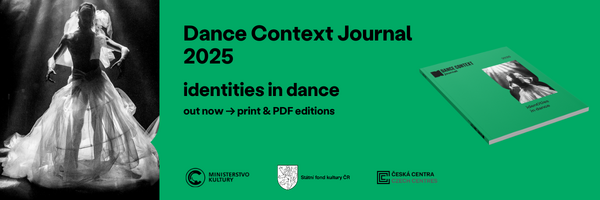Turmoil at Czech Academies of Performing Arts
Students of two artistic schools, the Theatre Faculty of the Academy of Performing Arts in Prague (DAMU) and the Janáček Academy of Performing Arts in Brno (JAMU), have voiced their concerns about the current situation at their alma maters. During the Ne!musíš to vydržet happening, the DAMU student Marie-Luisa Pukrábková read out a series of witness statements pointing out that the academic milieu is not always fair and inspiring. Both male and female students (the latter seem to be more affected) have reported multiple cases of the abuse of power, sexual harassment, downplaying the work and academic aspirations of women, and stereotyping.
The Ne!musíš to vydržet (You don’t! have to endure it) initiative has found support not only inside the academic world, but also among other artists and theatre makers. The topic has spread further - it was widely discussed at the September conference Culture Get-Together, organised by Nová síť, at the Zlomvaz festival, and also at the National Theatre, especially when Daniel Špilar announced his early retirement from the position of the Artistic Director of the Drama Department. On the flip side, it has been backlashed and criticised, and today’s students accused of being mentally unstable and fragile. The fact that they survived a year and a half of remote learning without falling apart and suffering a collective nervous breakdown is obviously not considered as a sign of resilience.
The subject of the initiative is nothing new under the sun. Both DAMU and JAMU make part of movements crushing the existing social arrangements - #MeToo, the Ferri affair, substantial changes at FaVU and AVU, the female ombudsman at FAMU, and the years-long debate over the approach to male and female students at dance conservatories (now made even more visible by Miřenka Čechová and her activities), to name a few. The inner power breeds inner strength to speak up and the rebelling voices are calling for new rules and resetting of norms and boundaries. It comes as no surprise, as it is typical of their age. Besides, we all do it to some extent, probably on a daily basis. It is impossible to defend the status quo just because “that’s how it’s done”, because the students’ voices might compromise or irritate someone, because they burst some stereotypes, models and illusions. What comes out of it? Only time will tell. Should these attempts be discarded as hysterical and irrelevant cries? Anyone saying this would be convicted of simplification and arrogance.
I watched the Culture Get-Together conference shortly before my first teaching experience at DAMU, and as a fan of Camille Paglia, completely bewitched by her Amazon-like feminism, I had to admit that words like care, safety and security were used much too often. “We can only learn something new when out of our comfort zone!”, I was telling myself, and if we do so we must face danger, uncertainty and the necessity to bite and scratch. And the next minute I realised that the space for learning had its limits. The learning process fails if it meets with destructive stress overload, fear and a high degree of discomfort that blocks the learning patterns and destroys the body and soul. And what’s more, in public schools this happens on the taxpayer’s dime. And if the stories are real, we are damn far from developing human potential and creativity, one of the most sought-after competencies on the job market, even outside the arts.
It appears that the initiative strives for a broader framework, for transparent rules that sort the acceptable from the unacceptable and apply to everyone, regardless of their position in the hierarchy and their sex. For rules that can be easily enforced when someone or something crosses the line. An environment suitable for creative life cannot be built without an intense dialogue, discussion and mutual respect (including intergenerational respect) – and not only in the academic setting. We can only wonder how far this wave will reach, washing out more trash, and who and what will stay on its rise.



